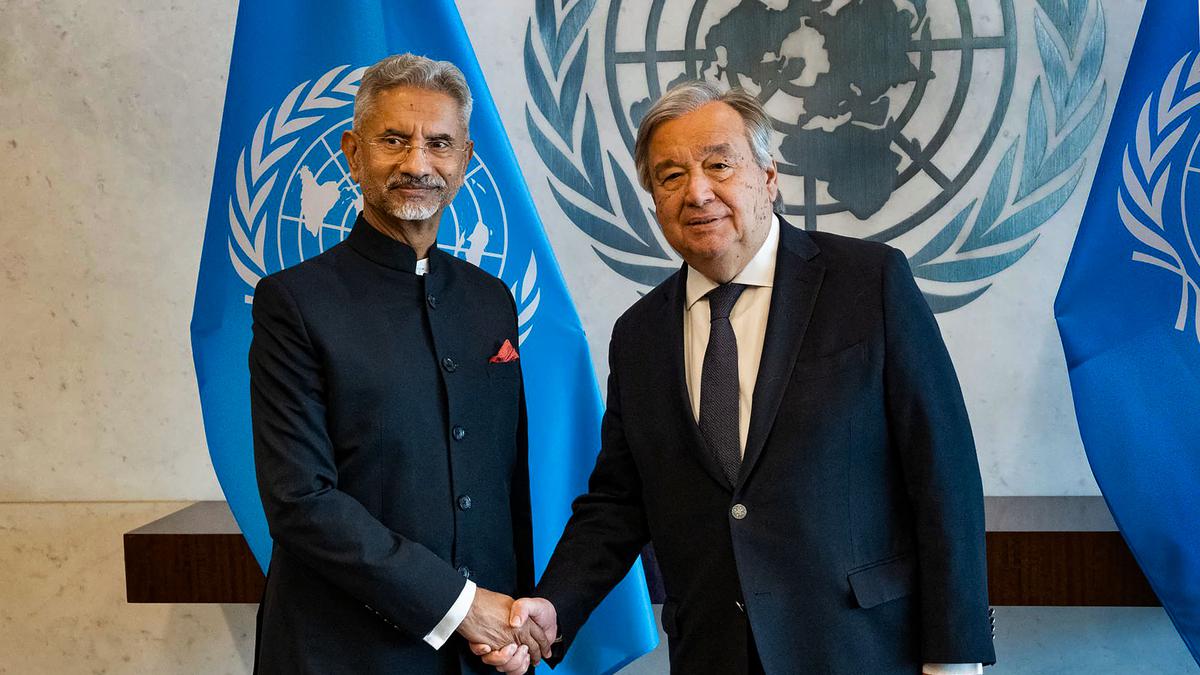
EAM Jaishankar discusses Sudan situation with U.N. chief Guterres, pitches for ‘successful diplomacy’ for early ceasefire
The Hindu
External Affairs Minister Jaishankar said once the fighting in Sudan started out, “I felt that it was very important” that he met the U.N. Secretary-General Guterres
External Affairs Minister S Jaishankar on April 20 discussed the worsening situation in Sudan with U.N. Secretary-General Antonio Guterres and underscored the need for “successful diplomacy” which can lead to an early ceasefire and create the ground situation for the safety and welfare of people.
Mr. Jaishankar, who met Mr. Guterres at the U.N. headquarters here, also discussed other issues, including India’s presidency of the G20 and the Ukraine conflict, with the U.N. chief.
“Good to meet UN Secretary General @antonioguterres in New York today afternoon. Discussed the current developments in Sudan, G20 Presidency and Ukraine,” he tweeted.
“Focus understandably was on Sudan. India strongly supports efforts towards an early ceasefire, leading to creation of safe corridors. Will continue to work closely with U.N. and other partners in this regard,” he said.
Mr. Jaishankar is headed on a nine-day trip to Guyana, Panama, Colombia and the Dominican Republic beginning on Friday, his first visit as the external affairs minister to these Latin American countries and the Caribbean.
Before his travel to Latin America, he arrived in New York.
He said while his trip to South America was planned quite a while ago, he “came here to the UN mainly because once the fighting started (in Sudan) on the 14th (of April), you could immediately see that this was very serious and a lot of people were trapped by the situation.” “We knew that the UN itself has a large presence in Sudan. This will be the centre. Because at this moment, what is needed is diplomacy, successful diplomacy because it’s only diplomacy which can create the ground situation for the safety and welfare of the people out there,” Mr. Jaishankar told a small group of journalists here after his meeting with Mr. Guterres.













